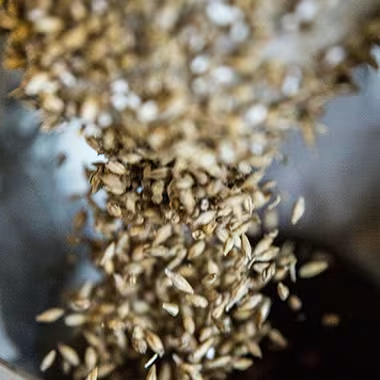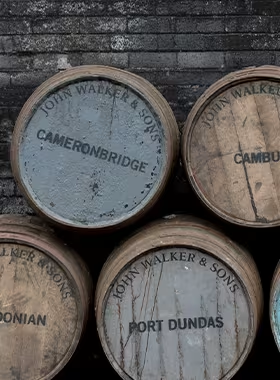WHAT IS BLENDED SCOTCH WHISKY?
BLENDED SCOTCH WHISKY
Blended Scotch Whisky is a mix of different whiskies, combined to create a consistent flavour. Careful blending is a skill that’s as much an art as a science. Our Master Blenders have incredible knowledge of all whisky types. It means they can continue the journey our founder John Walker started 200 years ago to unlock the world's boldest flavours. Here’s how they create our signature blends.
BLEANDED
WHISKIES HAVE A
UNIQUE BREADTH
OF SMOOTH
FLAVOURS
TO EXPLORE

So what is the difference between Single Malt Whisky and Blended Scotch? Blends combine different types of whisky to produce a Scotch with a wider range of flavours that can be enjoyed in a variety of ways. When making a Single Malt Whisky, the goal is to create something typical of that single distillery’s style. Comparing the two different kinds doesn’t really make sense – they’re not meant to be the same. It’s down to whichever flavours and style you prefer. After all, in order to be called Scotch, whiskies must be matured in Scotland. So no matter if they’re blended or a single malt, there are strict standards in place for both.
Discover types of Whisky



